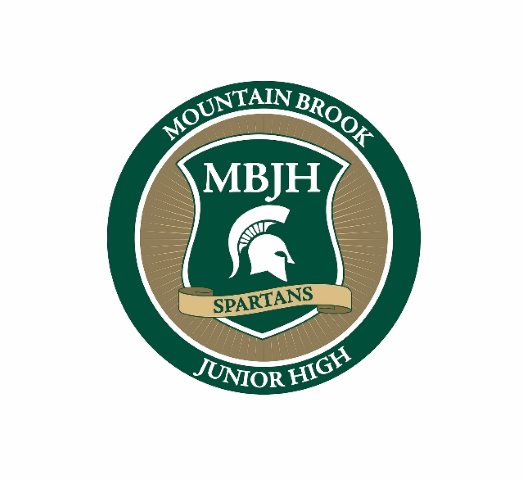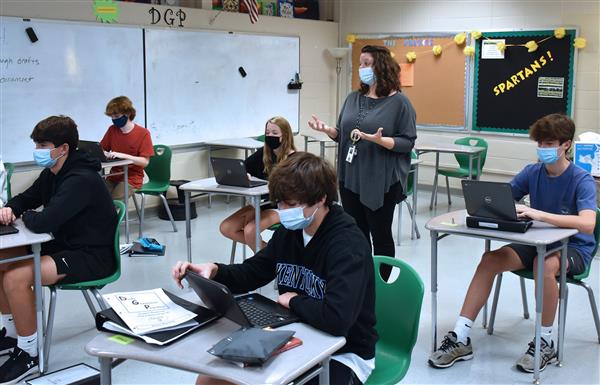
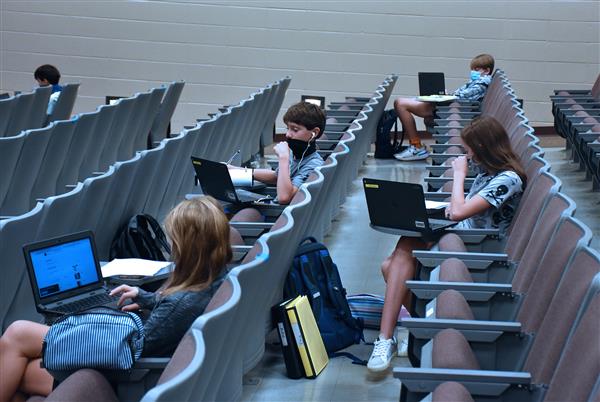
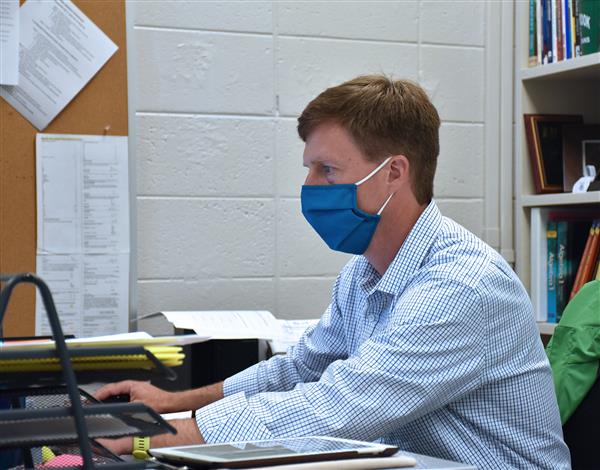
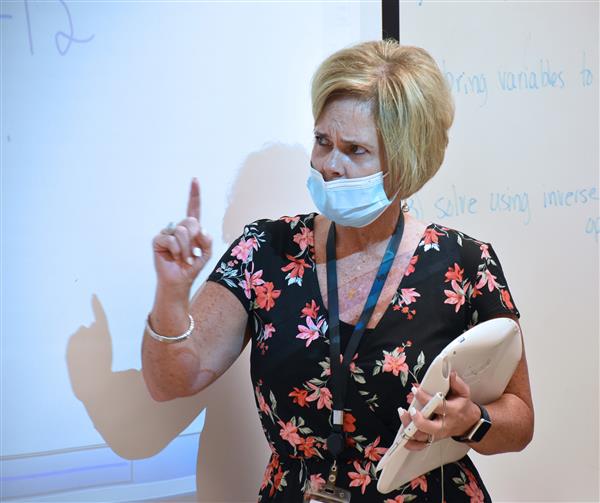
-
It is no secret that Mountain Brook Junior High has faced new challenges this school year.
Students report to campus less frequently with the Green and Gold alternating schedule — which has helped mitigate the spread of COVID-19 — while those who chose the full-time virtual option do not report to campus at all.
Screen time is up, facetime is down, and the traditional classroom has transformed.
But these hurdles have not stopped MBJH administrators and teachers from serving their students. Rather, they have risen to the occasion.
“I’m proud of them consistently because that’s just the way we operate and the way this faculty operates,” Principal Donald Clayton said. “They’re going to do whatever it takes.”
Maximizing student learning amid this atypical school year has mandated exceptional planning, collaboration, and responsiveness from teachers. Preparation began long before students returned to school and continues daily.
“There was a lot of planning and prep that went into figuring out what to teach, when and how to teach it, and determining how to meet all of our students’ needs in the best and most efficient way,” Anna McCain said.
McCain, who teaches ninth-grade English, has honed her instructional focus on the core standards students must master. She began the year with a summer reading review and grammar bootcamp before moving into lessons on short stories, literary elements, and crafting personal narratives.
McCain has worked to provide an equitable experience for her pupils regardless of their location.
“I try to make sure the virtual students are receiving the same type of instruction they would be receiving in a classroom,” she said, “so I do a lot of videos where I talk freely about the content as if they were here with me.”
McCain and her fellow junior high teachers rarely pause during the school day. If they are not leading a class, they are likely posting resources to Schoology — the new learning management system for Mountain Brook Schools — grading, or emailing students engaged in e-Learning.
With students scattered, teachers are placing special emphasis on providing immediate feedback.
“I have encouraged them to email me if they get stuck on something and told them I will be as available as I can,” Lars Porter said. “I have intentionally been a little more glued to my computer so that I can offer a timely response.”
Porter has stressed the importance of communication to his ninth-grade geometry students. He wants to know when and how they are struggling so that he can equip them with the resources they need to stay on pace.
The same is true for Porter’s peers, including Wendy Spiller.
“I don’t want kids to be at home working problems and doing them all wrong,” she said. “I want them to have immediate feedback right then to know if they’re doing them right or wrong.”
Spiller, who teaches seventh-grade pre-algebra, begins each class period with a review of the previous day’s content. The exercise gives her an idea of how well her students understood the online lesson.
“When they’re here, we’re trying to reinforce what they get at home plus go on with a new lesson,” she said. “We’ve realized we’ve had to slow down.”
MBJH has listened to feedback from students and parents and devised strategies to address areas of need, such as structure on e-Learning days. The junior high recently began hosting 90-minute student work sessions offered in the morning and afternoon on Monday, Wednesday, and Thursday. Teacher assistance is available.
“If today is a Green day, students who are Gold can sign up for one of two slots to come into a structured, quiet environment and get work done,” Clayton said. “We hear kids who do leverage it say they get a lot more done because it kind of replicates going to school.”
The junior high has also begun hosting weekend technology workshops to help acquaint parents with Schoology. In a year unlike any other, MBJH will do whatever it takes to serve students and ensure their continued success.
“I’m not shocked at all, because if you would have said to me five months ago our teachers are going to rise to a really, really challenging situation, I’d go, ‘Yeah, that sounds like us,’” Clayton said. “They are professionals who know why they come here, and that’s to impact kids."

